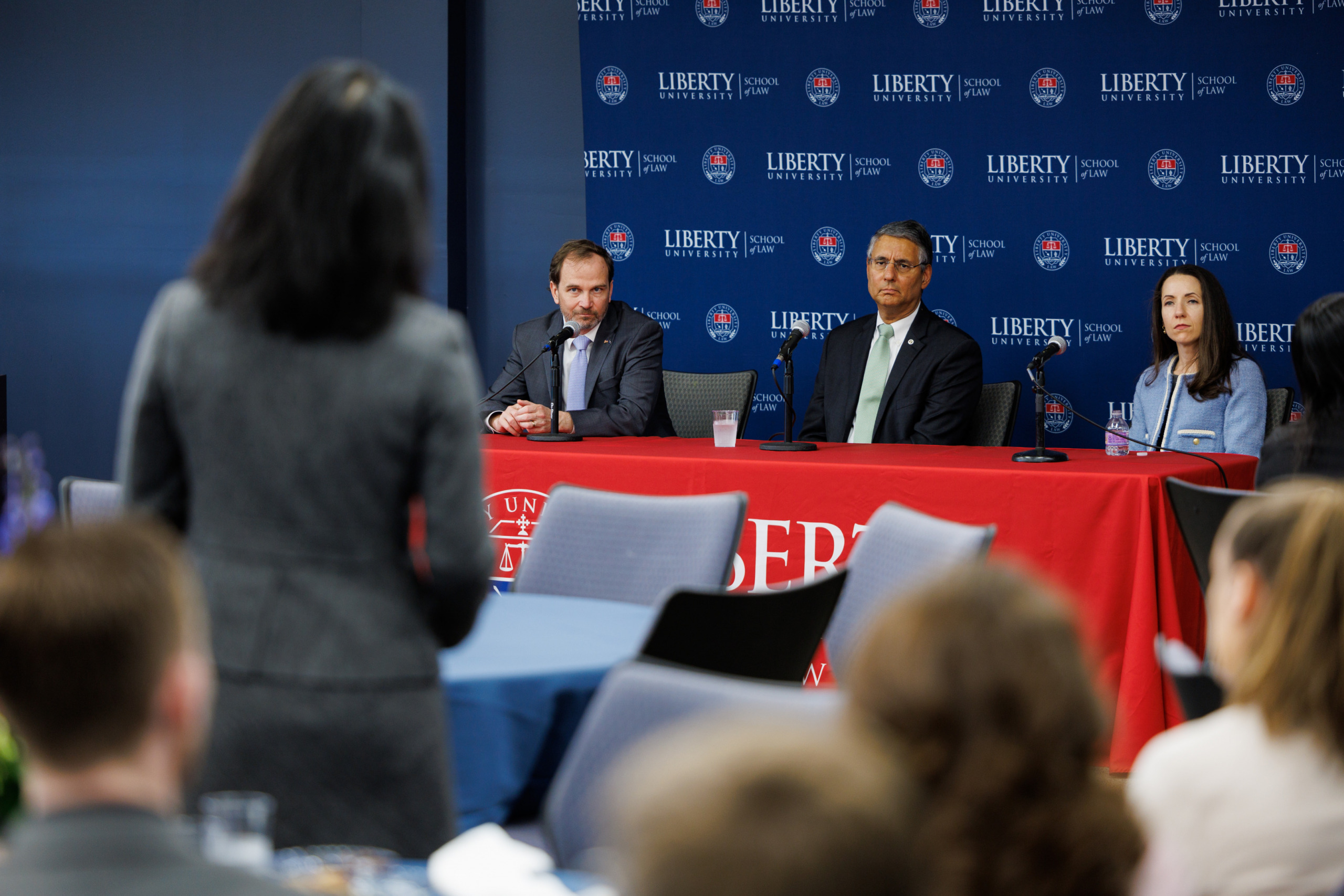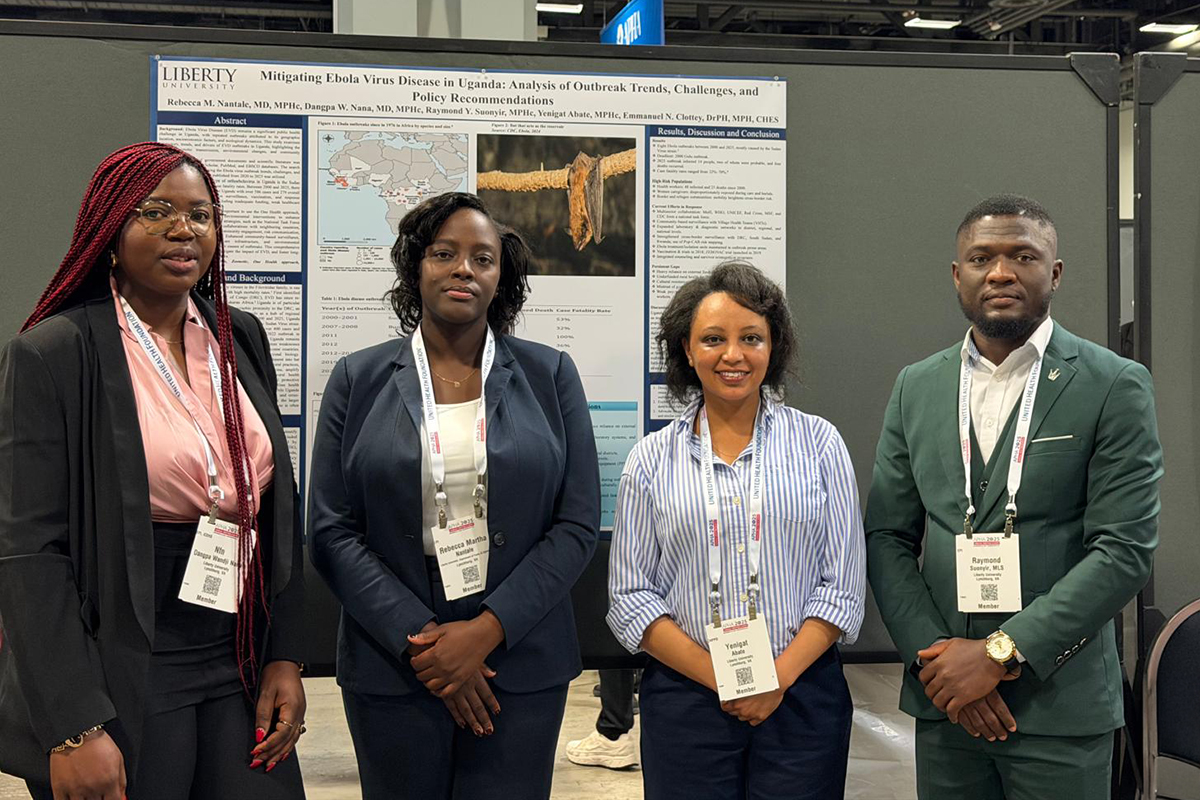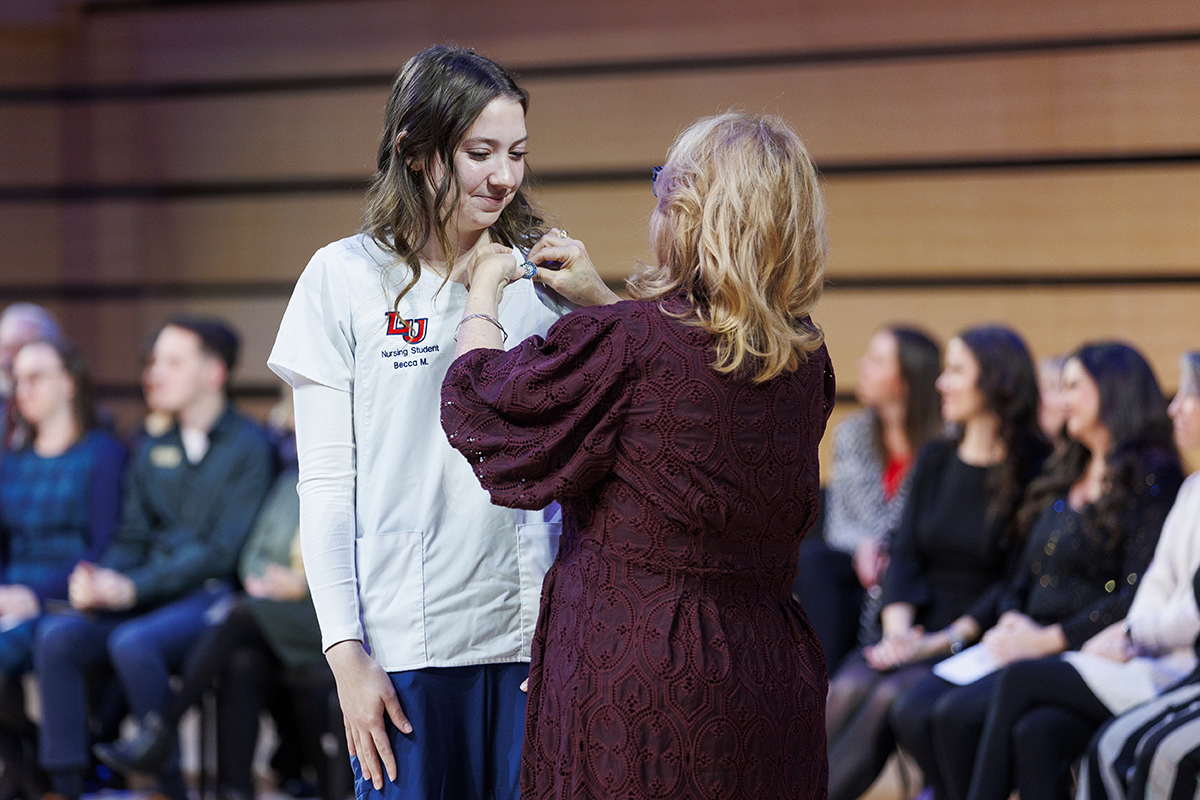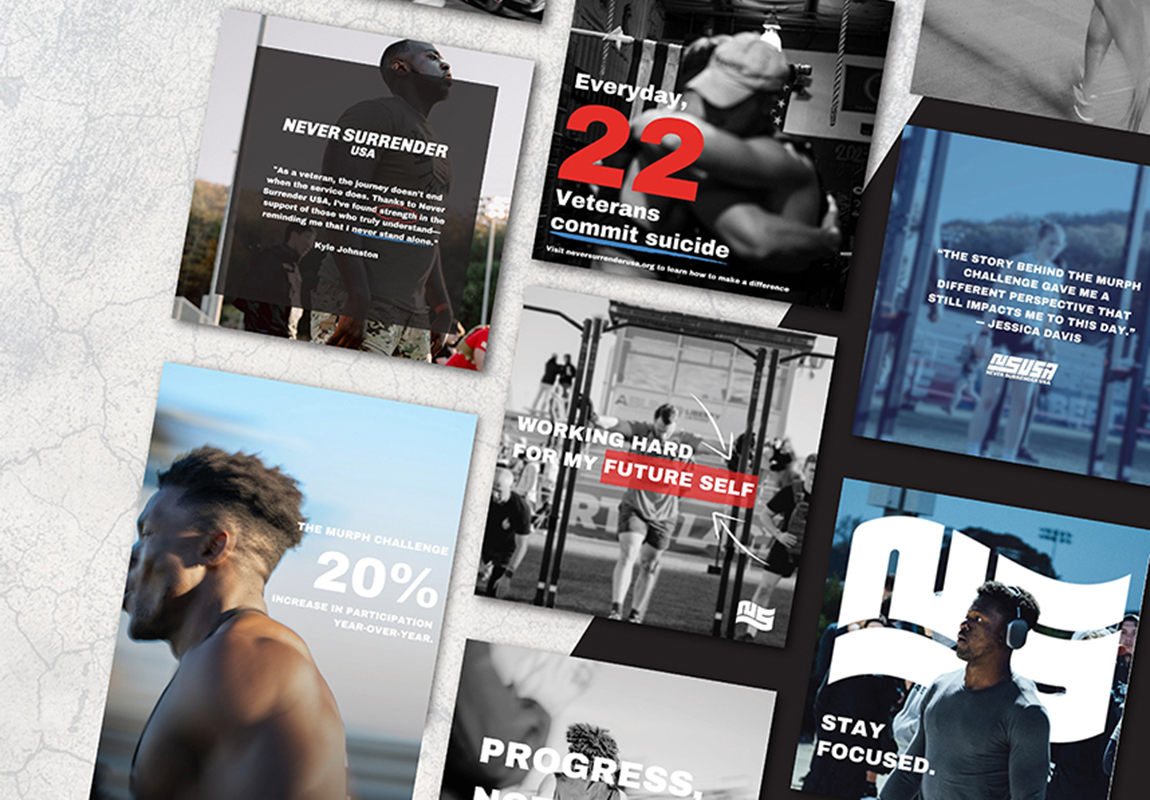Liberty Law hosts special session of U.S. Court of Appeals
March 7, 2024 : By Bryson Gordon - Office of Communications & Public Engagement
Liberty University School of Law students were granted a unique opportunity on Tuesday, as the United States Court of Appeals for the Fourth Circuit held court in Liberty Law’s Supreme Courtroom, giving students a front-row seat to witness one of the highest courts in the country in action.
At 9:30 a.m., the judges filed into the replica Supreme Courtroom, the gavel was tapped, and silence fell over the crowd of Liberty Law students as the court began session, more than 100 miles from its usual chambers in the Lewis F. Powell, Jr. United States Courthouse in Richmond, Va.
Chief Judge Albert Diaz, Judge Julius N. Richardson, and Judge Allison Jones Rushing stepped onto the bench, where they heard oral arguments for three cases.
The Fourth Circuit Court of Appeals is the second-highest federal court in the land, ahead of the United States District Courts. Once a decision is made in the district courts, the case can be appealed to a United States Court of Appeals, then appealed a final time to the United States Supreme Court, which has the ability to decide whether to hear the case.
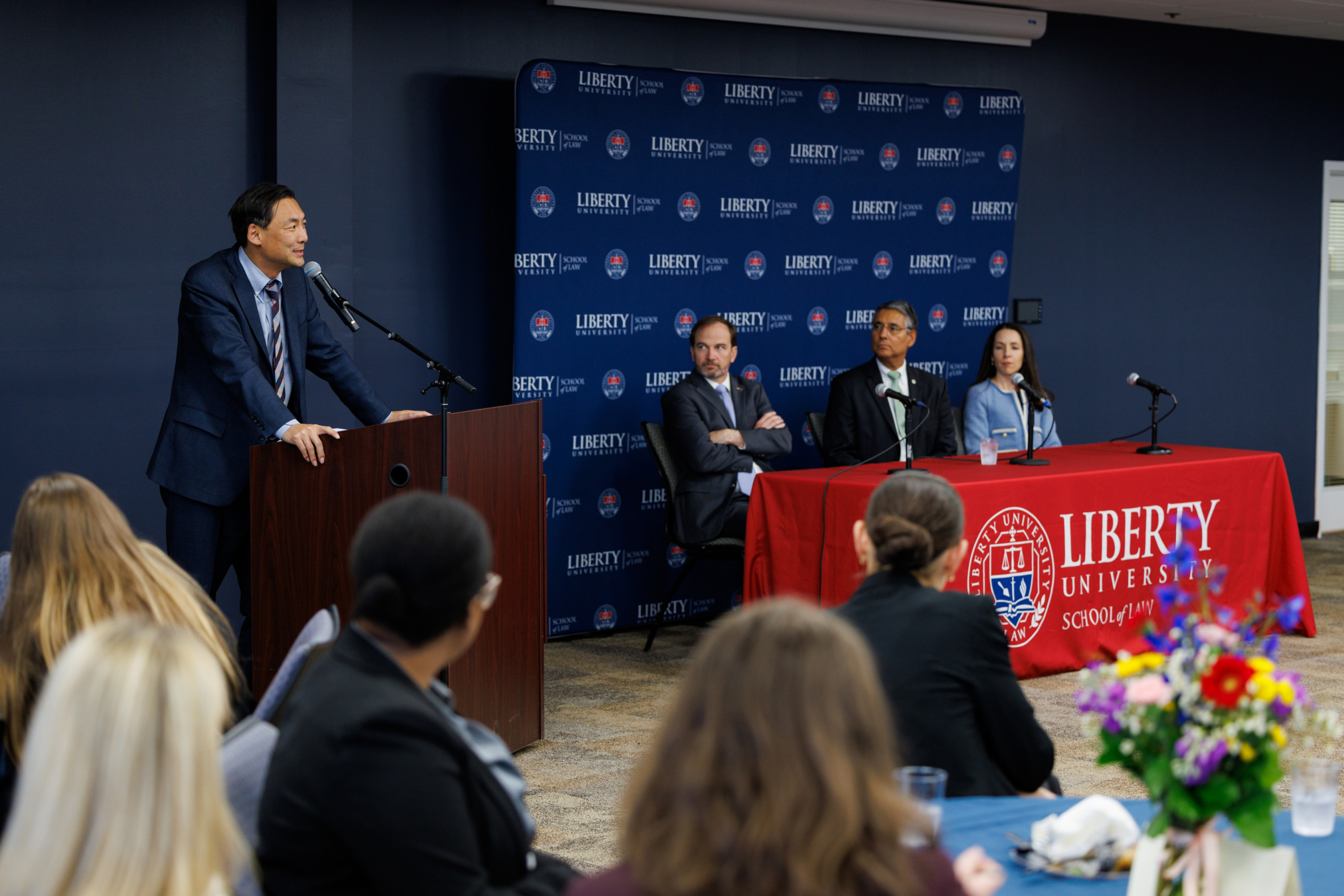
Liberty Law Dean Morse Tan called the occasion “really rare” for the court to leave its usual chambers to hear arguments at a university. Tan said the event came about after he met Chief Judge Diaz last year and asked him about the possibility of taking their court on the road.
After Tuesday’s session, Tan said he heard a student tell Liberty President Dondi Costin that the Fourth Circuit Court of Appeals holding court at the law school was “the best part of his legal education thus far.”
“If anything close to this is true of the rest of the students who mostly filled the Supreme Courtroom, it was more than worthwhile to bring in these appellate judges who serve at the level immediately below the Supreme Court.”
The judges heard arguments on diverse issues, including a case related to possible racial prejudice in a jury, a dispute over a telecommunications tower planning application, and a search during a traffic stop.
The session gave students a chance to hear arguments from defense lawyers, private attorneys for corporations, and even U.S. district attorneys. Chief Judge Diaz told the representing parties after arguments that each was deftly argued, and he credited some court-appointed defense attorneys for their willingness to take up the extra work.
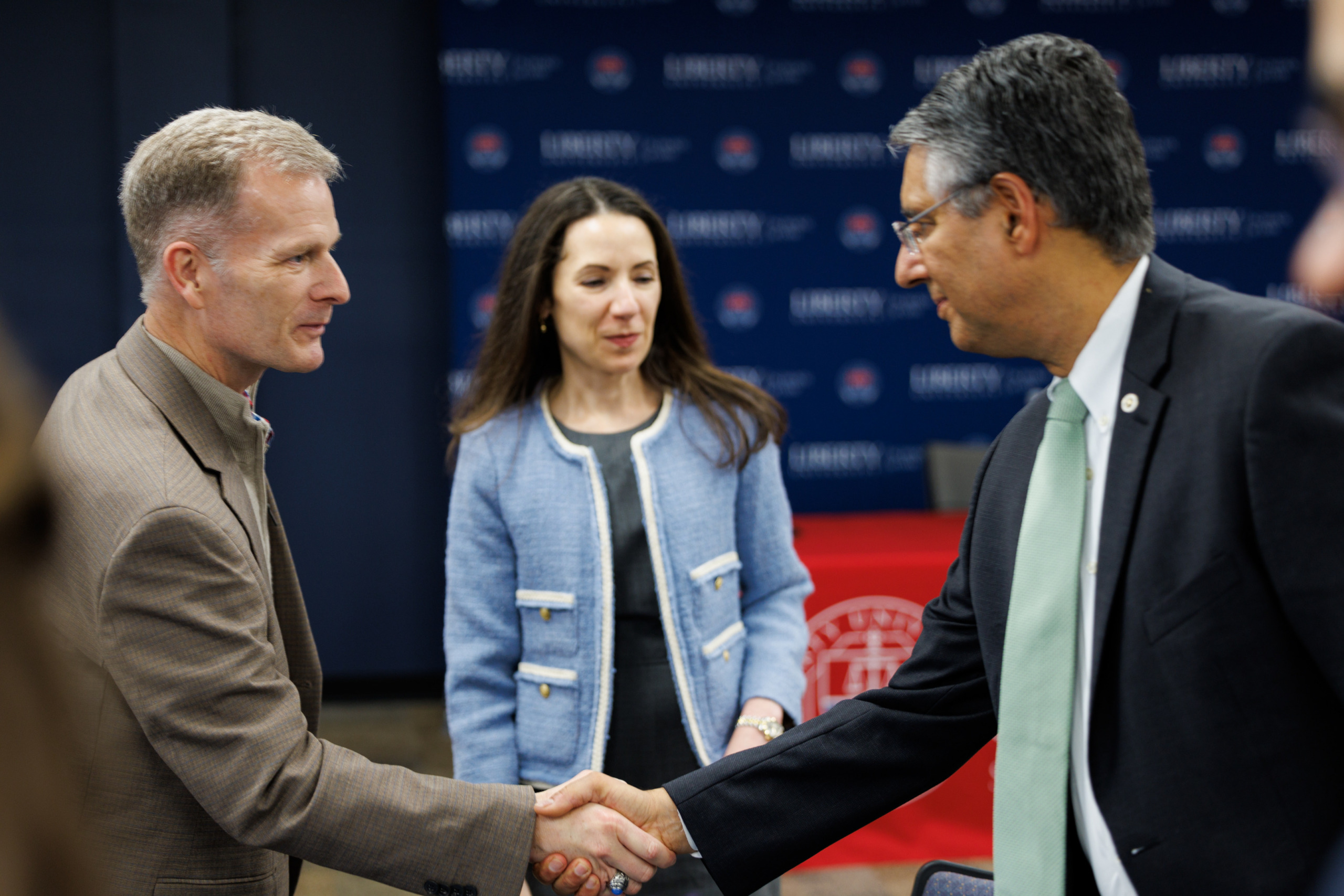
But it was an afternoon event where Liberty Law students were able to glean valuable information from each of the three judges, who engaged them in a town hall setting to answer questions about their paths to judgeship.
Costin joined the students, along with Provost and Chief Academic Officer Scott Hicks, Vice Provost Dr. Brian Yates, Dean Tan, and Interim Dean of the Helms School of Government Joel Cox for a luncheon, where Hicks delivered a few remarks before praying over the meal.
“I’m not sure (Liberty founder Dr. Jerry Falwell) ever thought we’d host a circuit court here on our campus,” Hicks said. “But this is a wonderful day for our school, and for you all to be able to see this up close.”
Alyssa Phipps, a 3L and president of the Student Bar Association, said the session gave students a glimpse into many of their futures.
“Today was special because it gave us a look into all of our possibilities down the road,” she said.
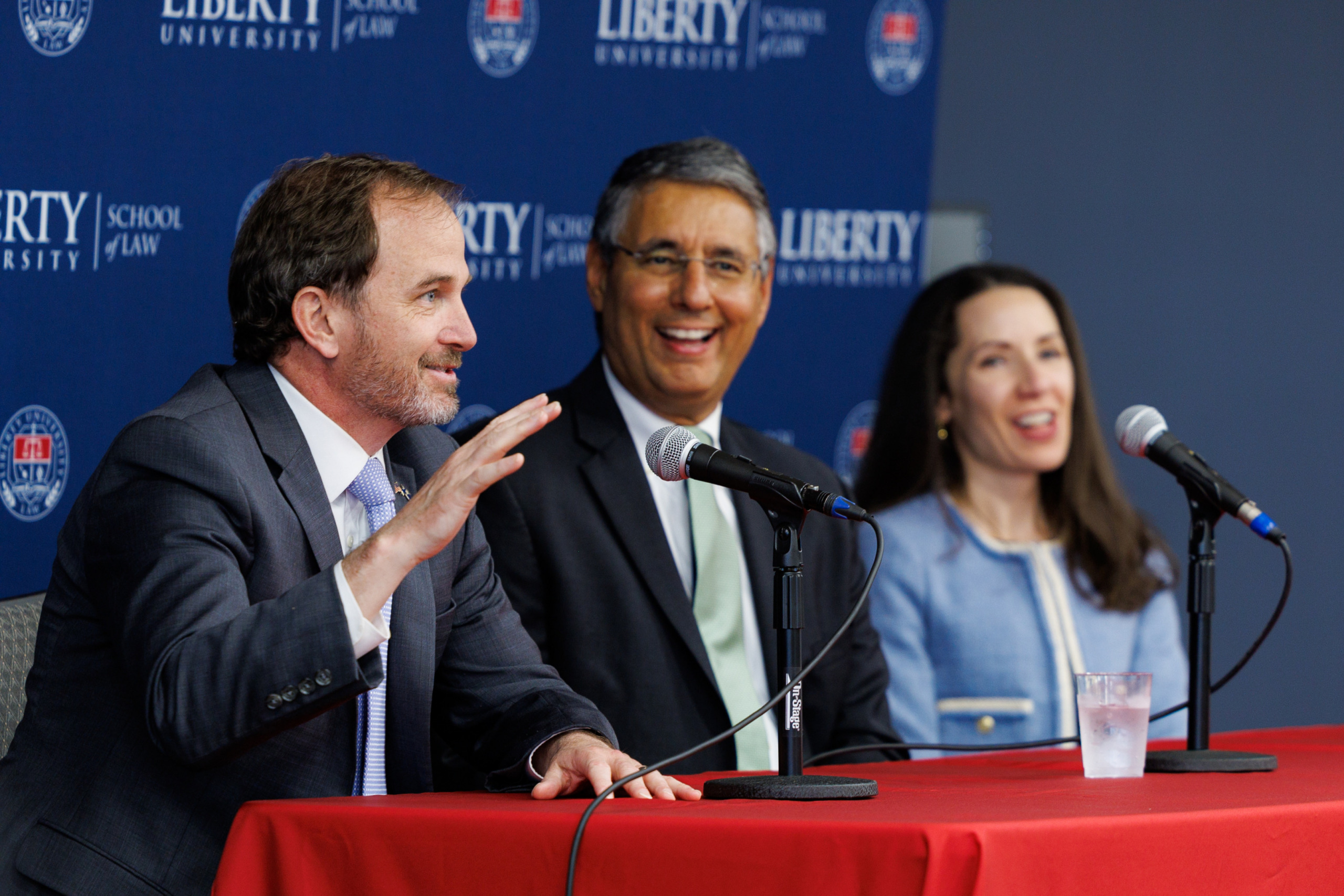
Diaz told students about his path from the Wharton School at the University of Pennsylvania to working more than 15 years in private practice in North Carolina. Judge Rushing talked about her path from clerking for two current Supreme Court justices — the Hon. Neil Gorsuch when he was on the 10th Circuit Court of Appeals in 2007, and in 2010 for the Hon. Clarence Thomas, who has served on the Supreme Court since 1991.
Diaz, along with the other two judges, stressed the importance of finding a mentor, and then passing the baton down when it’s time to be one yourself.
“You need people to be able to lift you up,” Diaz told the students. “Be open to others before you, but also be open to helping and lifting up the people that come after you.”
Richardson, in pointing out that all three of the judges hold their own beliefs close to their heart, encouraged students to not let others tell them that their faith can be a deterrent to their careers, to “hold true to your faith roots,” even in the face of a daunting career that could put your beliefs at odds with your work.
Phipps said the special guests inspired her in many areas.
“My biggest takeaway from today is how important it is to find a mentor but then to pass that down and be one,” Phipps said. “Today was mentorship exemplified by these judges.
I also learned that, even in this career, you can really do anything with your faith in Christ as long as you’re rooted strongly in that.”
